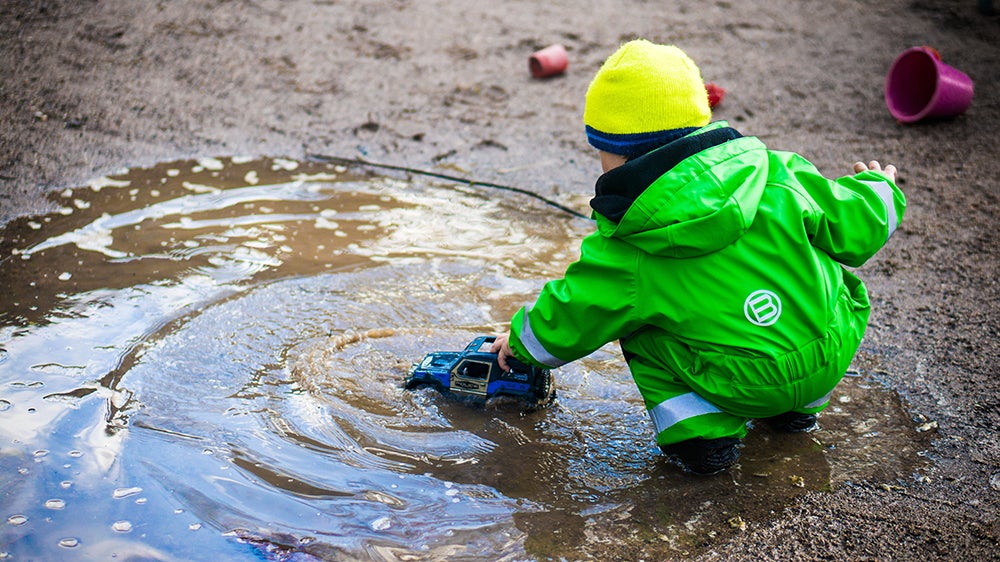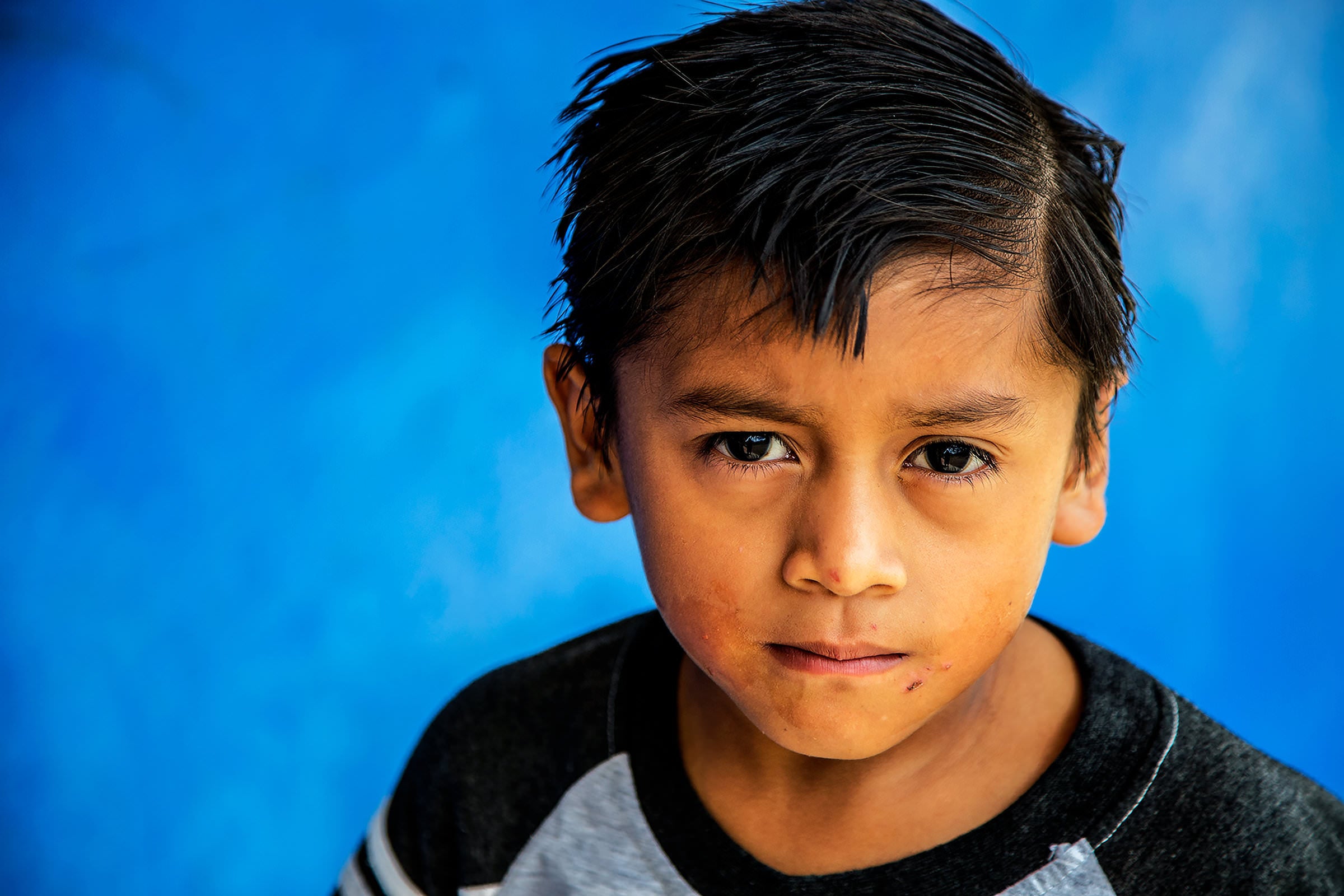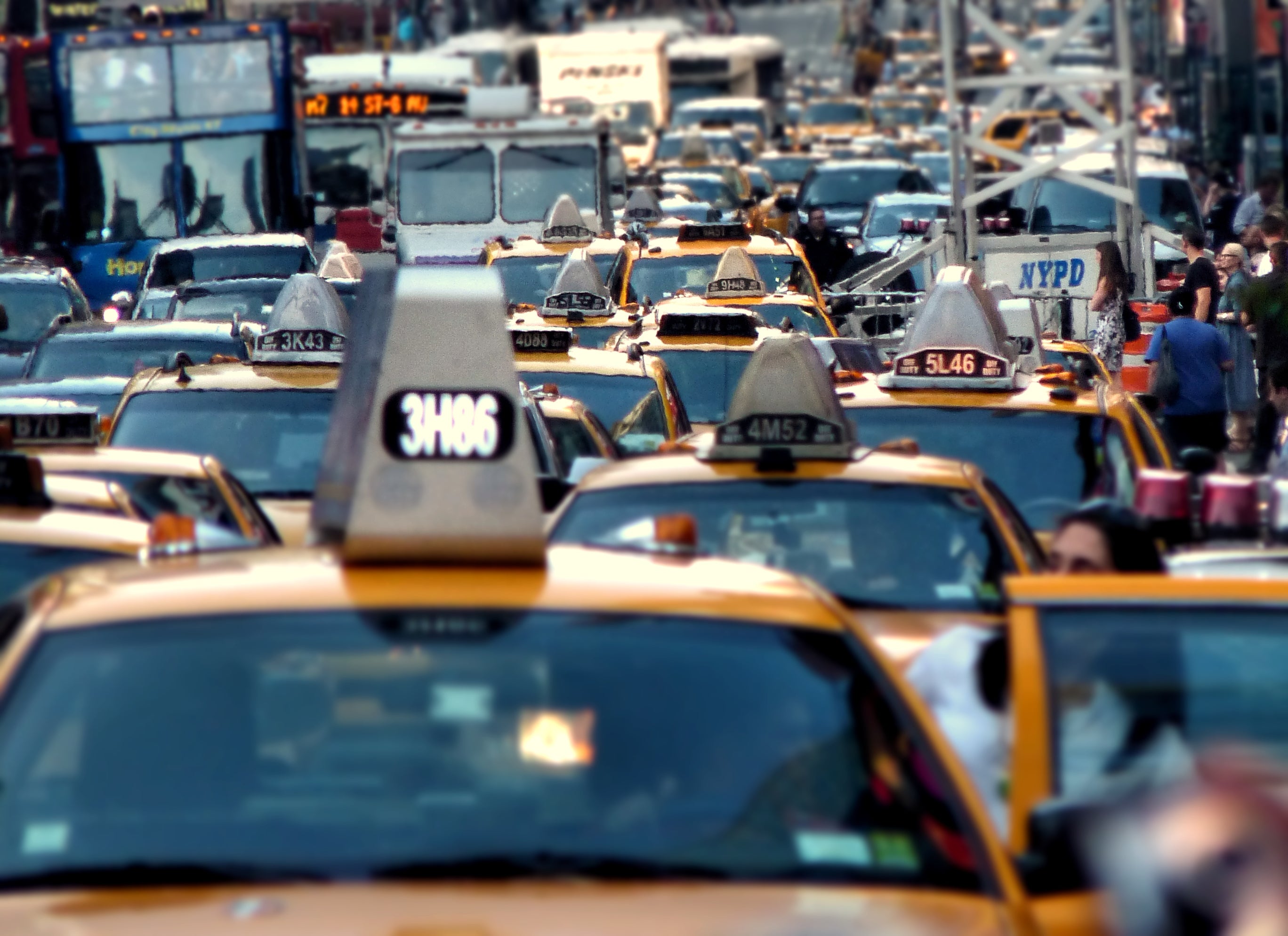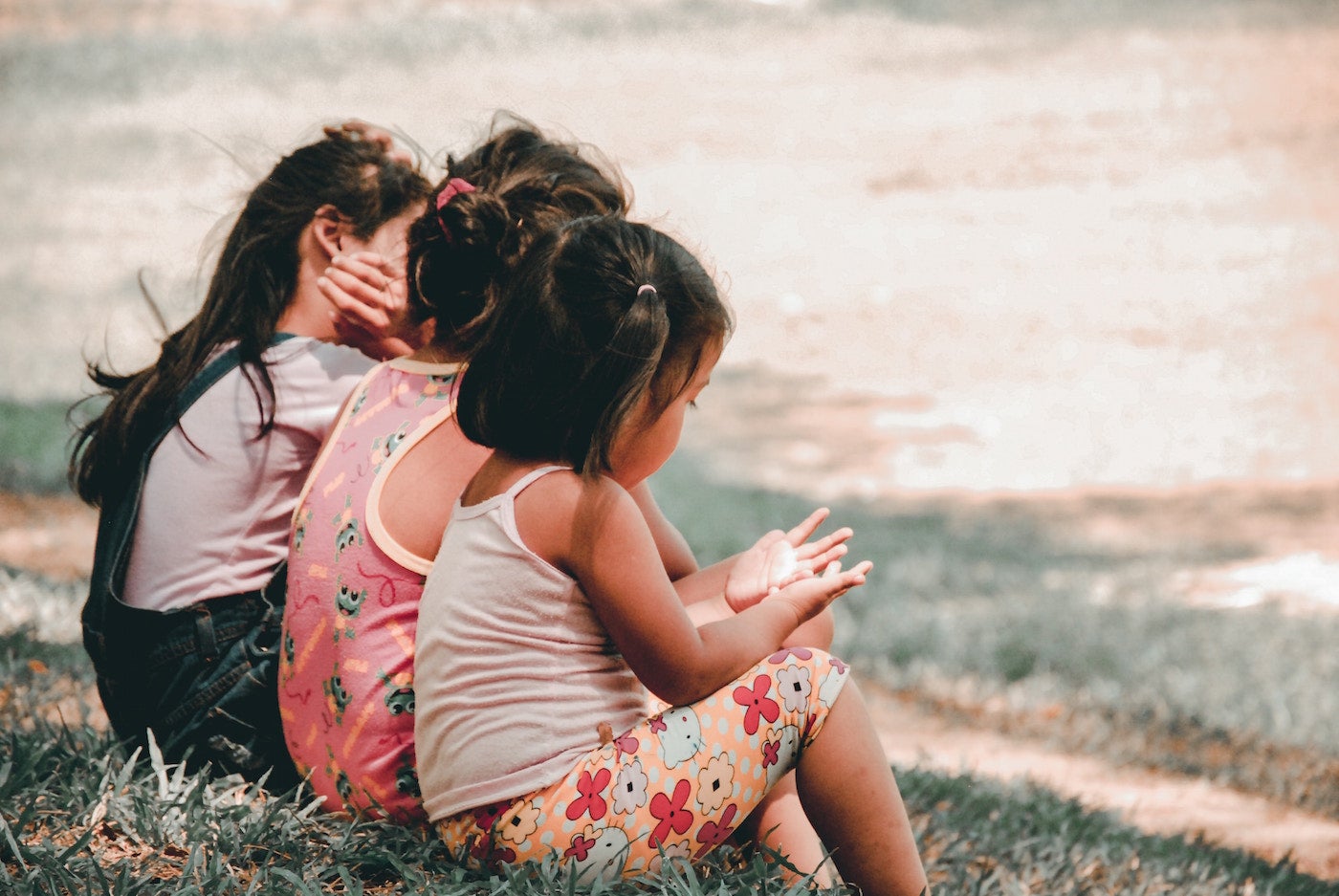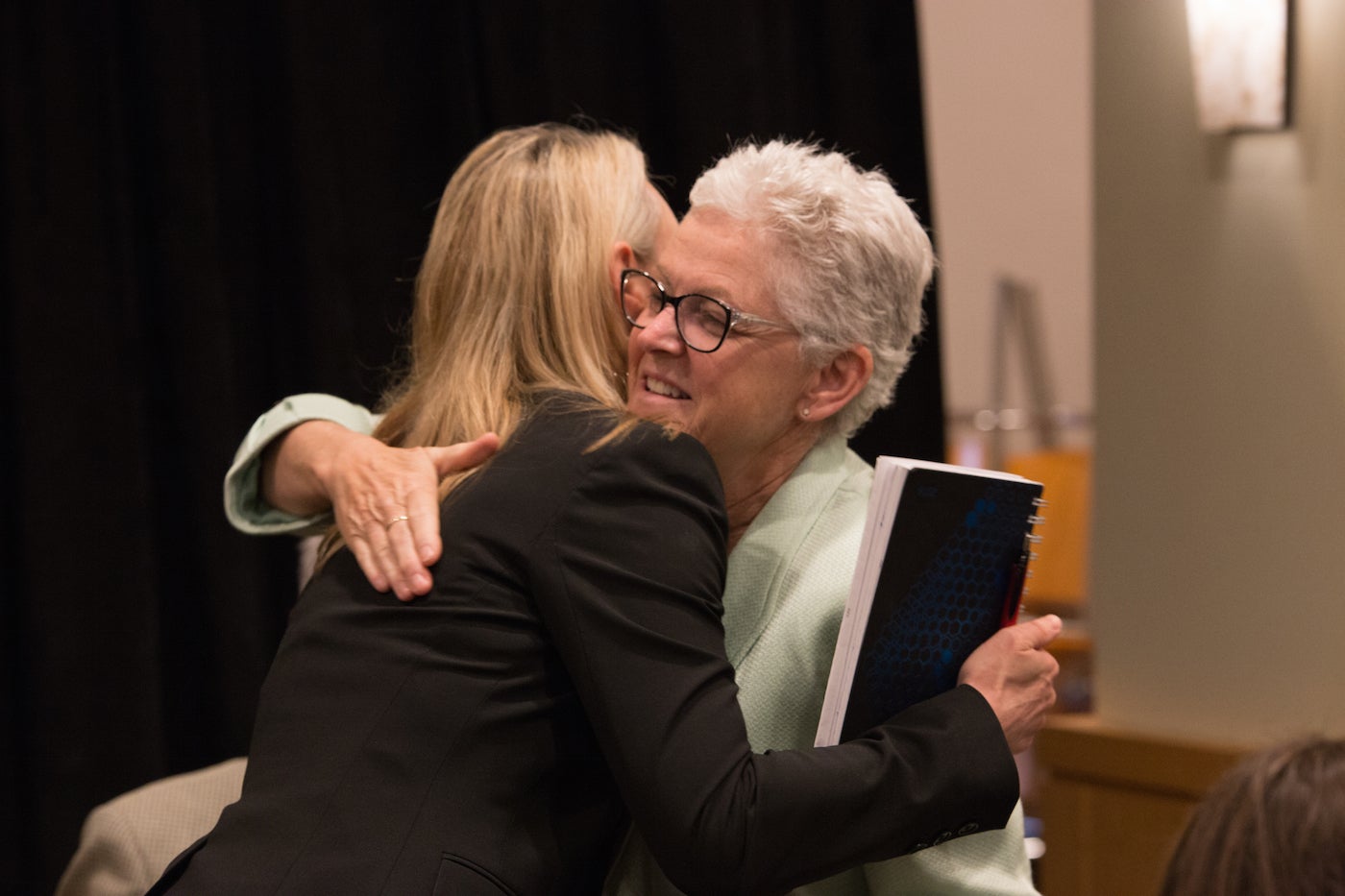Without Radical Emissions Reductions Climate Change Will Define Health for Generations, Report Warns
Babies born today will face unprecedented health risks and life-long health consequences from rising temperatures, according to new research published Wednesday from The Lancet.
The Lancet Countdown on Health and Climate Change is a comprehensive yearly analysis tracking the impact of climate change on human health across 41 indicators. The report also projects the health benefits that would come from meeting the Paris Agreement targets, and the health harms of business as usual. The project is a collaboration of more than 100 experts from 35 global institutions including the World Health Organisation (WHO), World Bank, University College London, and Tsinghua University.
“We are hurtling towards a world that is climatically more dangerous than the one we grew up in, and we have a profound responsibility to implement the treatment—a swift and urgent reduction in greenhouse gas emissions, for the sake of every child in our life,” said Dr. Renee Salas, an emergency medicine doctor and lead author of the 2019 Lancet Countdown U.S. Policy Brief, affiliated with Harvard Medical School, Harvard Global Health Institute and Harvard C-CHANGE. “With warming temperatures, a child born today faces a future where their health and well-being will be increasingly threatened. Climate change, and the air pollution from fossil fuels that are driving it, threaten a child’s health starting in their mother’s womb and it only accumulates from there.”
“We know that air pollution from fossil fuels has already damaged the health of generations of Americans,” said Dr. Jeremy Hess, associate professor of emergency medicine, environmental health, and global health at the University of Washington, author of the 2019 Lancet Countdown global report and U.S. Policy Brief. “It’s unnecessary and unacceptable, and we can do better. This report shows how polluting as usual harms our kids and spreads these harms on a global scale.”
The report offers an assessment of global impacts. Here are some key findings from the U.S. Policy Brief:
- In 2016, there were 64,200 premature deaths in the U.S. due to ambient PM2.5 air pollution. Roughly 8,600 of those deaths were due to coal combustion.
- Outdoor workers are increasingly exposed to life-threatening heat in the U.S. and urgent action is needed to protect them from further harm.
- S. workers, especially in agriculture and industry, lost nearly 1.1 billion potential labor hours between 2000-2018 and 64.7 million potential hours in 2018 alone from extreme heat.
- Southern U.S. states (defined as those below 34°N latitude) lost 15-20% of possible daylight work hours for heavy labor (e.g., agriculture and construction) in direct sun due to heat exposure during the hottest month in 2018 (July). Texas, Louisiana, Mississippi, Alabama, Georgia, and Florida were particularly impacted.
- Older adults age 65 and above are especially vulnerable to extreme heat. In 2011, 22.3 million additional heatwave exposure events for older adults occurred (with one exposure event being one heatwave experienced by one person 65 years and older) above the 1986-2005 average baseline. In 2016, 11.6 million more exposure events occurred compared to the baseline, followed by 3.7 million more than the baseline in 2017 and 3.1 million more than the baseline in 2018.
“Children are particularly vulnerable to the health risks of a changing climate. Their bodies and immune systems are still developing, leaving them more susceptible to disease and environmental pollutants,” said Dr. Nick Watts, Executive Director of The Lancet Countdown. “The damage done in early childhood is persistent and pervasive, with health consequences lasting for a lifetime. Without immediate action from all countries to cut greenhouse gas emissions, gains in wellbeing and life expectancy will be compromised, and climate change will come to define the health of an entire generation.”
Lifelong health impacts of business as usual
If the world follows a business as usual emissions pathway, with high carbon emissions and climate change continues at the current rate[1], a child born today will face a world on average 4˚C warmer by their 71st birthday. The resulting consequences, including food shortages, spread of disease, lack of safe drinking water, increasingly deadly fires and floods, and increasing numbers of days across expanding regions where temperatures and air pollution make it unsafe to go outside, will change life as we know it for children born today.
Poor air quality damages the heart and lungs
Throughout adolescence, the impact of air pollution will worsen. Fine particulate matter, pollution particles with a diameter of less than 2.5 micrometers (or 3% of the diameter of a human hair) known as “PM2.5”, is especially harmful. This pollution, primarily from coal and diesel combustion and industrial emissions, is so fine that it bypasses the body’s natural defenses (mucus and cilia in the nasal cavity) and is deeply inhaled and trapped in the lungs. This is especially damaging to young people whose lungs are still developing. Air pollution contributes to reduced lung function, aggravated asthma, and increased risk of heart attacks and stroke.
As global CO2 emissions rise (up 2.6% from 2016-2018), energy supply from coal is increasing (up 1.7% from 2016-2018), reversing a previous downward trend. Premature deaths related to PM2.5 remain stagnant at 2.9 million worldwide. Coal contributed to more than 440,000 premature deaths from PM2.5 in 2016, and likely more than 1 million deaths when all pollutants are considered.
Children will feel deadliest impact of disease outbreaks
Children are particularly susceptible to the infectious diseases that rising temperatures and changing rainfall patterns leave in their wake.
Over the past 30 years the number of climatically suitable days for Vibrio bacteria, which cause much of diarrheal disease globally, has doubled, and 2018 was the second most climatically favorable year on record for the spread of diarrhea-causing bacteria. The threat is particularly high in the Baltic, with a record high of 107 suitable days in 2018, and in Northeast USA, where the sea has been warming rapidly.
Suitable environments for Vibrio cholerae bacteria have increased by 10% since the early 1980s, increasing the likelihood of cholera outbreaks in countries where the disease does not usually occur.
Spurred on by climate change, dengue is the most rapidly spreading mosquito-borne virus in the world. Nine of the 10 most hospitable years for dengue transmission have occurred since 2000, allowing mosquitoes to invade new territories across Europe. Around half of the world’s population is now at risk of contracting dengue.
Throughout their lives, extreme weather events will intensify
A child born today will be put at increased risk of physical and mental harm from severe floods, prolonged droughts, and wildfires.
Over the past four years, 152 of 196 countries experienced a significant increase in people exposed to wildfires compared to 2001–2004. As detailed in the appendix, in 2018, the Camp Fire in California was the deadliest wildfire in the state’s history. It killed 85 people, destroyed nearly 150,000 acres, and cost more than $16 billion in damages.
As the fourth hottest year on record, 2018 saw a record-breaking 220 million more people over 65-years-old exposed to heat waves than in the year 2000, and 63 million more than in 2017. Seniors with chronic health conditions in European and Eastern Mediterranean cities were most vulnerable to heat-related stroke and kidney disease. Last year, Japan had 32 million heatwave exposures, equivalent to almost every person over 65 experiencing a heatwave.
Urgent action needed to protect health
Despite the scale of the challenge, the report offers reason for cautious optimism. Growth in renewables accounted for 45% of total growth in power generation in 2018 (27% from wind and solar power); while use of electricity as a fuel for road transport grew by almost 21% globally from 2015 to 2016; and low-carbon electricity accounted for a third of total electricity generation in 2016.
For the world to meet its climate goals and protect the health of the next generation, the energy landscape will have to change drastically, and soon, the report warns. Nothing short of a 7.4% year-on-year cut in fossil CO2 emissions from 2019 to 2050 will limit global warming to the more ambitious goal of 1.5°C.
Pursuing the Paris Agreement pathway to limit warming to well below 2˚C will allow a child born today to grow up in a world which reaches net-zero emissions by their 31st birthday—and secure a healthier future for coming generations. The Lancet Countdown authors call for immediate government action to begin to turn the tide on the enormous health impact of climate change:
- Delivering rapid, urgent, and complete phase-out of coal-fired power worldwide.
- Ensuring high-income countries meet international climate finance commitments of US$100 billion a year by 2020 to help low-income countries.
- Increasing accessible, affordable, efficient public and active transport systems, particularly walking and cycling, such as the creation of cycle lanes and cycle hire or purchase schemes.
Making major investments in health system adaptation to ensure health damage of climate change doesn’t overwhelm the capacity of emergency and health services to treat patients.
[1] Following a business-as-usual pathway, based on the current global trajectory, is predicted to result in average levels of warming of 4°–7°C by the end of the century.
“The Lancet Countdown on Health and Climate Change Policy Brief for the United States of America,” by Renee Salas, Paige Knappenberger, Jeremy Hess, published November 13, 2019.
Links:
- Read the U.S. Policy Brief
- Read the Global Report
- Learn about the Lancet Countdown U.S. Launch Event, November 18, 2019, Washington D.C.
Media Contacts:
- NYC: Emma Stieglitz, Climate Nexus, estieglitz@climatenexus.org, 267-566-4238
- London: Anjuli Borgonha, Communications Manager, Lancet Countdown: Tracking Progress on Health and Climate Change, borgonha@ucl.ac.uk, +44 (0)778 988 2563
- London: Rachael Davies, Communications Consultant, Lancet Countdown: Tracking Progress on Health and Climate Change, rachaelvdavies@hotmail.co.uk, +44 (0)797 456 0784





